|
Last week, I addressed the post COP21 climate challenge for the annual Environment Ireland conference hosted by EPA. The panel also included SEAI’s Jim Gannon; Anthony Cox of the OECD; Prof. John FitzGerald of Ireland’s National Expert Advisory Council on Climate Change; and Anna Beswick from Adaptation Scotland.
The last time I attended Environment Ireland was in 2011. I was horrified at the registration cost (> EUR 300 for a one-day event) and a shiny government gloss over a lot of the problems with Ireland’s environmental policies and inaction. |
I was asked to speak on “a vision for a fossil free society by 2050” -essentially a repeat of my TEDxUCD talk, but it’s been nine months since that talk and we’ve had COP21, our own climate legislation and a new government in the meantime. It was time for an update with a much needed reality check on where we are in achieving that vision.
Unlike my TEDx talk, which was designed to inspire the public to “just ask” for climate action, this talk was less about asking and more about getting them to choose which side of the fence they want to be on: standing idly by our government trying to do as little as possible or mucking in and transforming Irish society in line with the rest of the world. Listen to my #EnvironmentIreland16 talk on Sound Cloud or read my transcript below.
A vision (and reality) of a fossil free Ireland by 2050
|
|
By doing a TED talk on a ‘Fossil Free Ireland’, I felt if I could just show people what their day-to-day lives in a country that really acted on climate could look like then they would want that life. This is the climate narrative that’s missing from our public discourse. Climate action is presented in terms of its costs but not its benefits.
|
Incidentally, we’ve already spent over 150 million per year over the past two years just in flood repairs and insurance pay outs from our wetter, stormier winters, and you may recall the delayed spring in 2013 that contributed to our fodder crisis cost us 500 million euro.
When you put what we need to do to address climate change into simple terms, essentially to keep 80% of the world’s known fossil fuel reserves in the ground and stop exploring for any more oil and gas because we can’t burn it anyway -what you find is that the things we need to do to end our dependency on imported fossil fuel and peat are all things that would actually improve our quality of life.
|
A world of climate action would be a far more comfortable world for the future inhabitants of this country than a world of climate inaction. Specifically, I am referring to warmer homes, lower energy bills, cleaner air, quieter streets, more connected communities, new kinds of jobs, and more localised food production.
|
Home
|
The most tangible element of a fossil free Ireland is the difference it could make to our homes. We know that to move to a 100% renewable energy system as part of the vision of the Energy White Paper will also require a reduction in energy demand, and that has to start now with retrofit and insulation of our homes.
There are ambitious regulations coming from the EU Buildings Directive requiring new buildings to be designed to nearly zero energy building standards by 2021 leading to a 50% to 60% improvement in terms of energy efficiency and reduction in CO2 emissions. |
We have the vision, but we still have two million existing homes in need of retrofit and need a new national renovation strategy to tackle this -which the EU requires all member states to have by April 2017. At an average cost of EUR 28,000 per home for deep energy retrofit this is a significant technical and financial challenge, but an essential part of achieving a fossil free vision for Ireland.
Transport
|
In Transport, we need a completely electrified transport system in the next three decades. That means both electric cars and an electrified public transport system.
Every car manufacturer in the world now is working on electric vehicles so the technology is advancing rapidly. In Ireland, we now have over 1,000 EV charge points across the country and are leading the pack in Europe with respect to EV infrastructure but we’re going the opposite direction on the consumer purchasing side. |
We need to set ambitious milestones to ensure we make the EV transition – like The Netherlands, where they’ve prohibited the sale of diesel or petrol vehicles by 2025 so they go from 10% EV purchase to 100% in less than 10 years. Or California, where they just legislated an emission reduction target that will have the most car-mad state in the USA reach 25% EV ownership and 50% renewable energy production by 2030.
If we’re heading toward a fossil free Ireland, we need to discourage the purchase of the least fuel efficient vehicles and roll that money into incentivising electric vehicles, but our fossil free transport system cannot be based on electric vehicles alone. Our LUAS carries over 35 million passengers a year with continually increasing demand and need for expansion. It’s an example of the right approach to public transport. More of this, please!
We also need to begin decarbonising our buses. In Sweden, 2/3rds of their buses are already ethanol powered. In the UK, the first buses powered by human and food waste went into service last year. Prof. Jerry Murphy at UCC has done lots of interesting research for over a decade on how we could power our buses from livestock slaughter waste, municipal waste, and even sea lettuce. Prof. Murphy spoke to the Oireachtas about many of these options in 2008 an urged them to ensure any new buses could run on alternative, indigenous and renewable fuel sources and yet no changes have been made. The technology has all been there for a while now. All that’s missing is the political will to make it happen.
|
Most importantly, we need to value cycling as part of the transport solution. There are so many co-benefits in cycling beyond its role to address climate change. Cycling could contribute to solving our obesity crisis, our mental health crisis, and our crumbling high streets. There is evidence to show, not surprisingly, people who cycle are healthier, less prone to depression and more inclined to stop and shop.
|
We need more cycle paths like the one along the Grand Canal and a policy that we only build cycle paths that are safe enough to let our kids ride on. That takes investment but last year we spent less than 1.5% of our transport budget on sustainable transport (mostly in the form of safe cycling education for kids). We need to spend about 10% on actual cycling infrastructure if we’re serious about the low carbon transition.
The EPA reported last May transport emissions will increase 13%-19% on current levels by 2020. If we want a fossil free Ireland, we need to break the transport silence and start asking hard questions about how transport really will contribute to the low-carbon transition.
Food
|
On Food, we’ve been having the climate change versus agriculture debate in this country for as long as I’ve lived here, which is over 13 years now. By continually framing climate action in terms of its economic impact on agriculture, we ignore the quick wins we could have in the transport and building sectors in the meantime. However, we can’t ignore the fact that over 30% of our greenhouse gas emissions come from agriculture and that contribution will become more significant as our energy sector continues to decarbonise.
|
We have strengths that offer us opportunities to become leaders in addressing the challenge of climate change in the agricultural sector, including the fact that most of our dairy and beef farms have calculated their carbon footprint under Origin Green and that our carbon efficiency per unit of beef or dairy is lower than most other countries, but these facts are not enough to claim leadership. To lead in climate smart agriculture, we need to reduce absolute emissions because the Earth simply doesn’t care how carbon efficient our beef or dairy is. -All that matters is how much more total carbon we pump into our finite atmosphere.
Last December, I went to Athlone with RTE’s Ear to the Ground and met dairy farmers who were suffering their second flood in five years. They told me how they’d raised their sheds 18 inches after the 2009 flood at considerable expense only to be standing in a further 12 inches of water last December. They told me how they didn’t know if they could keep farming under these conditions.
Last December was a moment where I thought we were change ready. The Climate Summit had just happened and there wasn’t a Minister in Ireland that didn’t stand in those flood waters and tell us we could expect to see more of it due to climate change. But it’s been nine months and we’re no better prepared for the next flood.
We should be encouraging our farmers to diversify out of volatile dairy markets and unprofitable beef to protect themselves from future climate change. We should be helping them to contribute to the renewable energy transition by putting a price on solar and facilitating them toward a solar rooftop revolution. We should be paying them to become our first flood defenders to slow water down upstream and protect populated towns and villages downstream as they’ve done in England and Wales. This is a vision of Irish agriculture that would see our communities much more connected to our farmers and local food.
Our reality is that EPA projects our domestic agricultural emissions will increase by at least 2% between now and 2020. Teagasc recently published a scientific paper in the Journal of Land Use Policy that concludes it is highly unlikely that the Food Harvest 2020 ambition and climate objectives are compatible, and stated this may necessitate a reappraisal of the Food Harvest targets. This is the policy intervention that’s required if we want a fossil free Ireland.
Jobs
|
Today, we import most of our energy in the form of fossil fuel and most of our food. In a fossil free Ireland, we create 100,000 new jobs in energy sector alone just through renewables.
Ireland needs to move away from linear economy based on the concept of make, take, and throw-away and toward a circular economy, where the waste from one industry becomes the fuel for the next. |
More recently, I met a team at UCD led by Colin Keogh and Tom Curran who are using waste plastic bottles as the filament to go into 3D printers for new plastic products. This is the kind of innovation and new job creation a circular economy can bring.
IBEC supports this new model, but advises that we need a revised waste policy to make it happen. Incineration sends us backwards on the circular economy and sustainability pathway by decades.
We’re already losing out on jobs because we’re not making this transition fast enough. Last week, a bioenergy company, Solar 21, announced it had sent 80 jobs destined for Ireland (and potentially hundreds more) to the UK because our energy policies were not progressive enough.
Community
|
For many reasons, we need to re-village our villages. Our high streets are struggling economically as shoppers move out to industrial estates where parking is plentiful. Even Dublin businesses have said they’re losing money because congestion has gotten so bad. We need safer, quieter, cleaner streets to shop, and play on and better public transport and cycling infrastructure is key to that.
|
Ireland has learned a painful lesson in wind development. My colleague, Craig Bennett, Director of Friends of the Earth England, said it best when he described how essential it is to engage communities when he wrote in the Guardian the day after Brexit. He said:
To date, we haven’t involved people in this transition. We really shouldn’t just be having these kind of conversations among ourselves. We should do more to engage all of society in this challenge starting with making conferences like Environment Ireland more accessible to civil society groups.
Country
|
A year ago this month, Our Taoiseach addressed the U.N. Sustainability Summit in New York citing the Irish people’s generational memory of occupation, hunger, conflict and mass emigration as a reason for our ”deep commitment to addressing suffering and hardship wherever they are found” and urged a response to such hardship “that draws on our common humanity and our common compassion”.
|
In Bangladesh, almost five million people have left their rural homes to live as "pavement dwellers" in Dhaka due to flooding, storms and a dramatic decline in agricultural productivity. That number is growing at a rate of half a million people per year and Dhaka will soon become the largest megacity in the world.
Surely, this is the kind of suffering and hardship Enda Kenny was referring to in his impassioned speech at the U.N. last September. But we are one of only two countries that will not meet its EU 2020 targets. In fact, we’ll fail to miss them by about 70% and our failure has now become a convenient argument for lower 2030 targets. In other words, for the next two years there is no incentive for Ireland to make any efforts to reduce emissions that would only make 2030 targets more difficult to achieve in the future.
This is not the behavior of a country that is compassionate to the hardship of others. Nor is this the behavior of a country who cares about helping its future inhabitants to be energy or food secure.
The "Think" versus "Do" gap
|
Nine months after COP21, I wanted to present a positive, inspiring vision of a fossil free future for Ireland as I did last December at UCD, but it would be disingenuous for me to say that we’re on our way to a fossil free Ireland by 2050 given the obfuscation of responsibility by our elected officials.
What a will say is that this is a clarifying moment for Ireland... |
Each of us now has a choice to make. Do we want to put our efforts into making the transition or stopping it?
Fortunately, there are countervailing forces in Ireland that are still working toward a transition: Global players, companies like Diageo; The renewable energy sector; local communities who want community-owned power; and even our esteemed climate advisory council, who has the opportunity to consider the National Policy Position on climate action that aims for an 80% decarbonisation in buildings, energy and transport and carbon neutrality in agriculture by 2050 when providing recommendations to government.
Change happens in the blink of eye
In the mid-1980s, AT&T forecast cell-phone adoption by the year 2000 to reach 900,000 subscribers. The actual number was 109 million and AT&T missed out on a multi-trillion dollar opportunity. We are seeing similar disruptions in solar and in electric vehicles now.
We may perceive that nothing ever changes, but when it does it happens in the blink of an eye, so we can no longer sit on the fence while the rest of the world leaves us behind.
|
Keep fighting the good fight!
-Cara
Join me at Dublin Cycling Campaign's protest to demand proper funding for cycling -Monday, October 3rd from 5:30pm Merrion Square West. Help break the #TransportSilence! Details here.
|

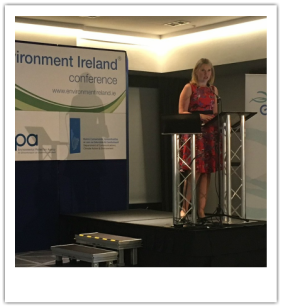
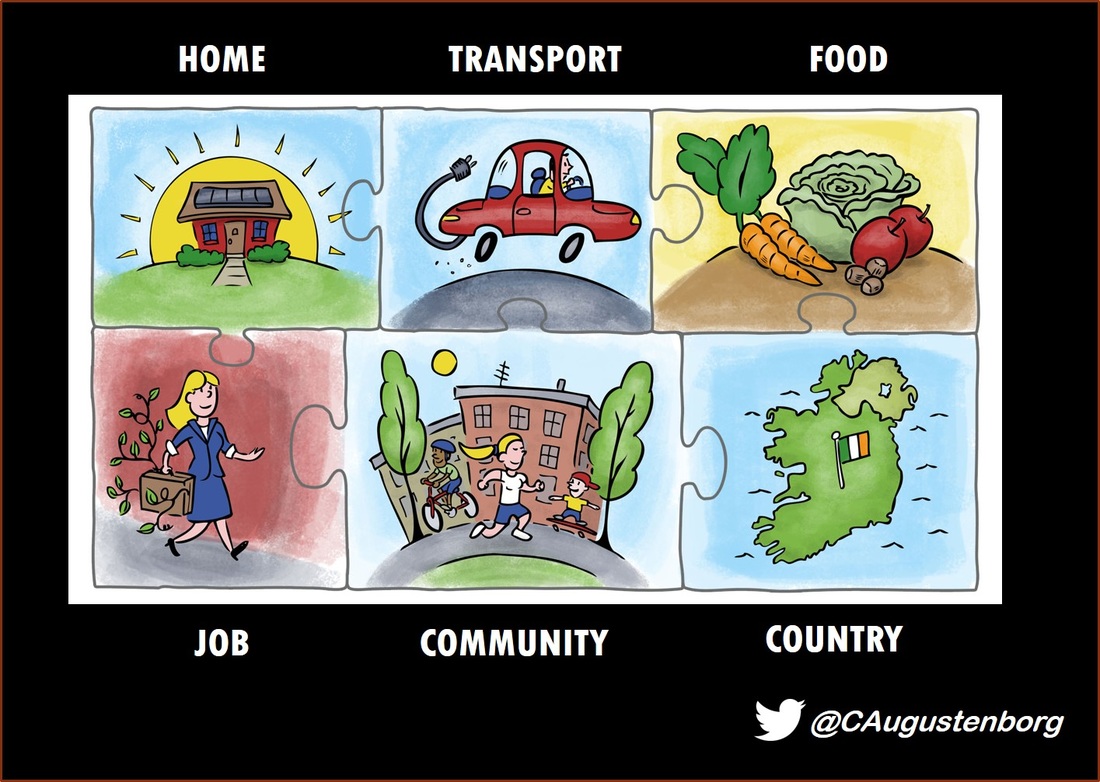

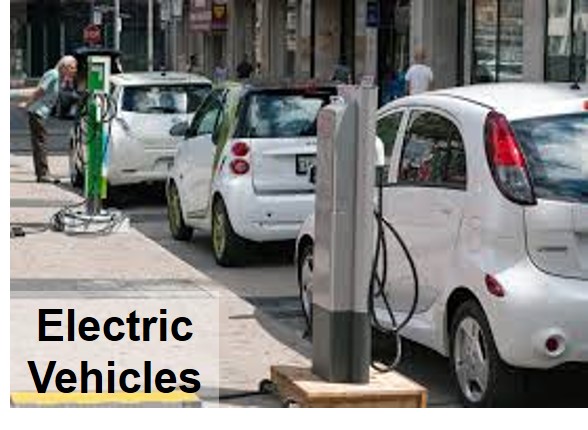
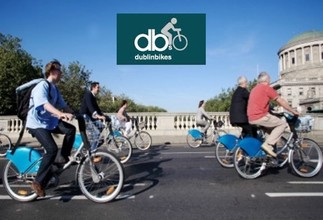
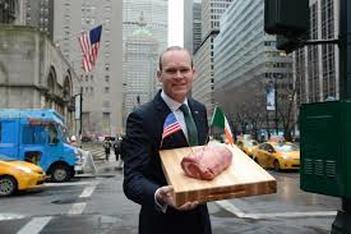

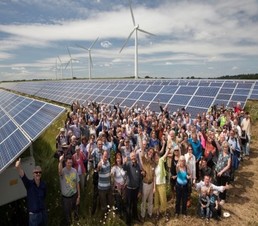
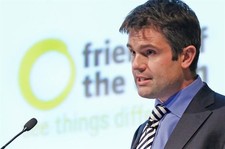
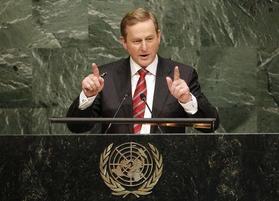
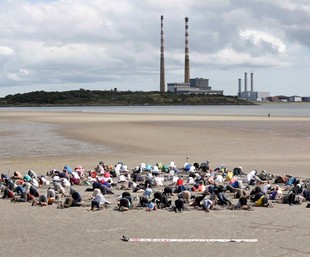
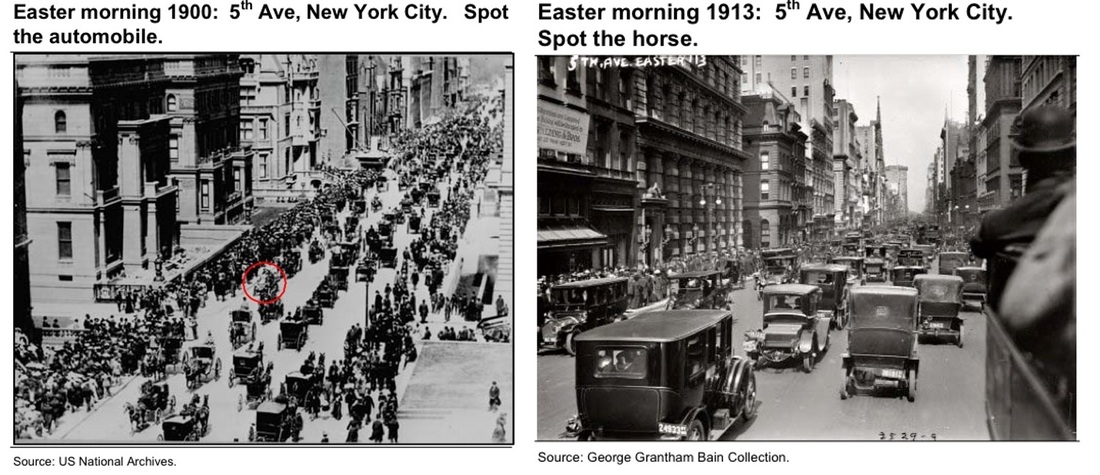

 RSS Feed
RSS Feed